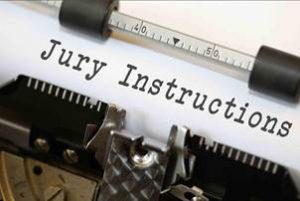 The Virginia Supreme Court recently handed down an important ruling that clarifies how juries should be instructed as to a presumption of undue influence in will contests. This opinion (Parson v. Miller, 822 S.E.2d 169) is essential reading for any estate litigator.
The Virginia Supreme Court recently handed down an important ruling that clarifies how juries should be instructed as to a presumption of undue influence in will contests. This opinion (Parson v. Miller, 822 S.E.2d 169) is essential reading for any estate litigator.
Under Virginia law, a presumption of undue influence arises in certain circumstances relating to the execution of a will, pursuant to which the burden of proof shifts to the proponent of the will to rebut the presumption. Prior to Parson, there was some question as to the manner in which a jury should be instructed about the presumption of undue influence. The question was: should the jury be instructed to find whether the presumption of undue influence has been rebutted, or should the trial court make such a determination as a matter of law (and in turn keep that decision from the jury)?
In Parson, the Virginia Supreme Court answered that question in favor of the second option: that the trial court (as opposed to the jury) should make the determination of whether the presumption of undue influence was rebutted.
The following is the key portion of the Court’s opinion:
[T]he only effect of the presumption is to shift the burden of production to the proponent of the will. The contestant of a will always retains the burden of persuasion, and in order to prevail on a claim of undue influence, the contestant of a will must prove undue influence by clear and convincing evidence.
Having clarified the type of presumption that applies in cases alleging undue influence in the creation of a will, we will take this opportunity to set forth the legal effect of this presumption in such cases. If a contestant of a will pleads sufficient facts to allege that (1) the testator was old when his will was established; (2) he named a beneficiary who stood in a relationship of confidence or dependence; and (3) he previously had expressed an intention to make a contrary disposition of his property, such allegations would be sufficient to survive demurrer. At trial, if a contestant of a will puts forth evidence to prove these three elements, the presumption would be established and the contestant would survive a motion to strike his evidence at the close of the plaintiff’s evidence.
Once the presumption of undue influence is established, the burden of production then shifts to the proponent of the will. If the proponent of the will puts forth no evidence at this point, the presumption of undue influence is sufficient to form the basis of a verdict in the contestant’s favor. In order to rebut the presumption, the proponent of the will is required to put forth countervailing evidence tending to prove that the decedent’s will was not overborne. We have explained that “not all influence is undue in the legal sense. To be classified as ‘undue,’ influence must place the testator in the attitude of saying, ‘It is not my will but I must do it.'” If the proponent of the will produces evidence tending to prove that the decedent’s will was not overborne, the presumption “disappears like a bursting bubble.” The contestant of the will then retains the burden of proving undue influence by clear and convincing evidence.
If the presumption has been rebutted and has “disappeared,” the jury should not be instructed as to the presumption. In order to submit the question of undue influence to the jury, “there must be evidence presented which is sufficient to show that the person executing the will was deprived of his volition to dispose of his property as he wished.” If such evidence is insufficient to submit to the jury, the proponent’s motion to strike the contestant’s evidence should be granted.
(internal citations omitted).
Practically speaking, I suspect that there will be few scenarios in which the proponent of the will wouldn’t be able to put forward at least some evidence tending to prove that the decedent’s will was not overborne. The practical effect would be to “burst the bubble” (using the Court’s words) of the presumption, thereby keeping the jury from being instructed as to the presumption. The result of the Parson holding is that going forward, there will likely be very few instances in which a jury is instructed on the undue influence presumption.



